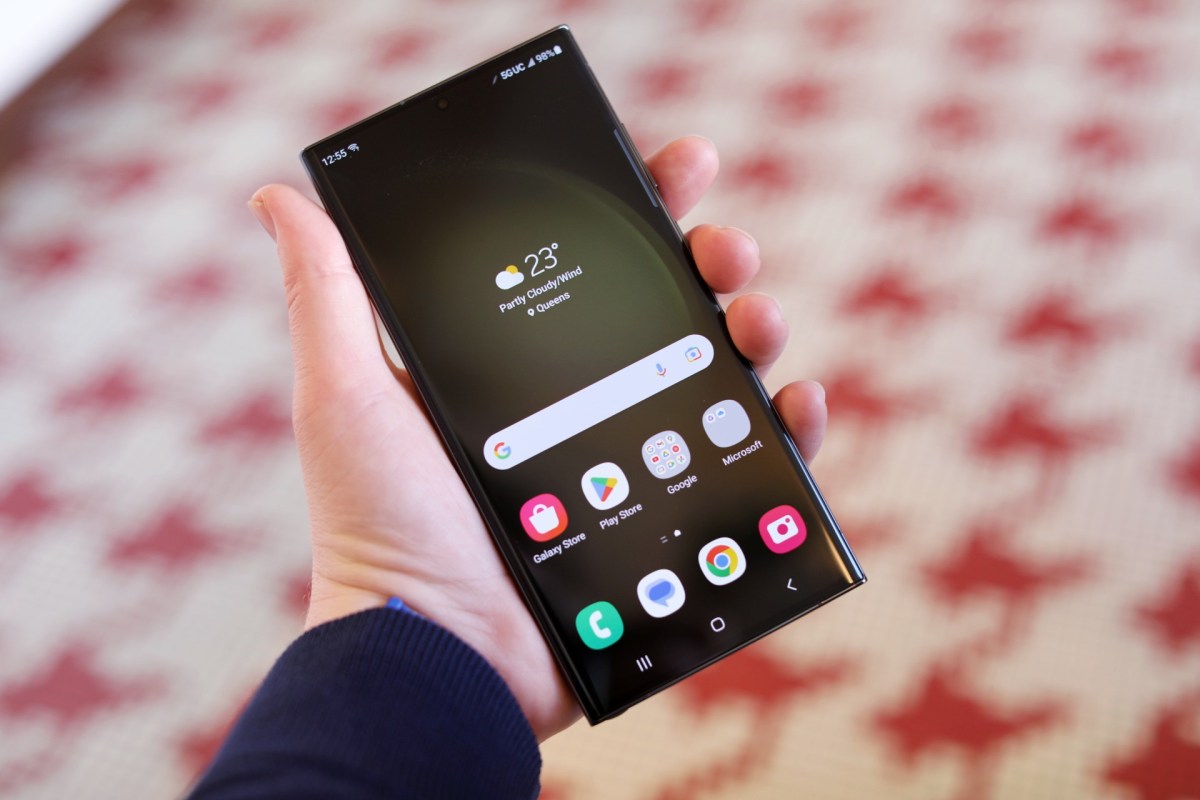Technology
Spyware Targets Samsung Galaxy Phones Using Zero-Day Vulnerability

Security researchers have uncovered a sophisticated Android spyware campaign, dubbed “Landfall,” that specifically targeted Samsung Galaxy phones over nearly a year. According to experts at Palo Alto Networks’ Unit 42, the spyware was first detected in July 2024 and exploited a previously unknown security vulnerability in the Galaxy phone software, classified as a zero-day flaw. This vulnerability allowed hackers to send a maliciously crafted image to victims’ devices, potentially through messaging applications, without requiring any interaction from the user.
Samsung addressed the security flaw, identified as CVE-2025-21042, in April 2025. Despite this patch, the details surrounding the Landfall spyware campaign had not been reported until now. The exact identity of the vendor behind the spyware remains unclear, and the number of individuals targeted is still unknown. However, Unit 42 indicated that the campaign primarily focused on individuals in the Middle East.
Targeted Espionage Campaign
Itay Cohen, a senior principal researcher at Unit 42, described the hacking campaign as a “precision attack” aimed at specific individuals rather than a broad distribution of malware. This suggests a motive rooted in espionage, rather than random cybercrime. Unit 42 noted that the Landfall spyware shares digital infrastructure with a known surveillance vendor called Stealth Falcon. This group has a history of targeting Emirati journalists, activists, and dissidents since 2012.
While the association with Stealth Falcon raises questions, Unit 42 emphasized that it does not provide enough evidence to definitively link the attacks to a specific government client. The spyware samples discovered were uploaded to VirusTotal, a malware scanning service, from locations including Morocco, Iran, Iraq, and Turkey throughout 2024 and early 2025. Notably, Turkey’s national cyber readiness team, known as USOM, flagged one of the connected IP addresses as malicious, bolstering the theory that individuals in Turkey were among the targets.
Capabilities and Targeted Devices
The Landfall spyware is designed for extensive device surveillance. It can access a victim’s data, including photos, messages, contacts, and call logs. Additionally, it can tap into the device’s microphone and track the user’s precise location. Unit 42 identified that the spyware’s source code referenced five specific Galaxy phone models, including the Galaxy S22, S23, S24, and several Z models. Cohen noted that the vulnerability could also affect other Galaxy devices running Android versions 13 through 15.
Despite the serious implications of this discovery, Samsung has yet to respond to inquiries regarding the spyware campaign and its impact. The revelations surrounding Landfall highlight the ongoing risks posed by sophisticated cyber threats, particularly in regions with heightened political tensions. As the landscape of digital security continues to evolve, the need for robust protections against such targeted attacks becomes increasingly urgent.
-

 Top Stories1 month ago
Top Stories1 month agoRachel Campos-Duffy Exits FOX Noticias; Andrea Linares Steps In
-

 Top Stories1 week ago
Top Stories1 week agoPiper Rockelle Shatters Record with $2.3M First Day on OnlyFans
-

 Top Stories6 days ago
Top Stories6 days agoMeta’s 2026 AI Policy Sparks Outrage Over Privacy Concerns
-

 Sports5 days ago
Sports5 days agoLeon Goretzka Considers Barcelona Move as Transfer Window Approaches
-

 Top Stories1 week ago
Top Stories1 week agoUrgent Update: Denver Fire Forces Mass Evacuations, 100+ Firefighters Battling Blaze
-

 Top Stories1 week ago
Top Stories1 week agoOnlyFans Creator Lily Phillips Reconnects with Faith in Rebaptism
-

 Top Stories5 days ago
Top Stories5 days agoWarnock Joins Buddhist Monks on Urgent 2,300-Mile Peace Walk
-

 Entertainment6 days ago
Entertainment6 days agoTom Brady Signals Disinterest in Alix Earle Over Privacy Concerns
-

 Top Stories1 week ago
Top Stories1 week agoOregon Pilot and Three Niece Die in Arizona Helicopter Crash
-

 Health2 months ago
Health2 months agoTerry Bradshaw Updates Fans on Health After Absence from FOX NFL Sunday
-

 Top Stories4 days ago
Top Stories4 days agoCBS Officially Renames Yellowstone Spin-off to Marshals
-

 Sports4 days ago
Sports4 days agoSouth Carolina Faces Arkansas in Key Women’s Basketball Clash



